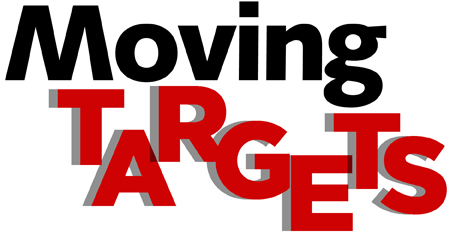
Washington, D.C., Chicago, Morton Grove, Winnetka, Evanston, Oak Park, Wilmette: After the U.S. Supreme Court’s Heller decision, NRA’s lawyers are fighting civil rights battles in cities across the nation.
 |
By Chris W. Cox NRA-ILA Executive Director |
Every shooter and hunter knows that moving targets are the hardest to hit.
Whether it’s a flushing pheasant in a cornfield or a “mover” at a handgun match, a moving target tests your nerves and your skill. Second Amendment litigation is much the same, as some local governments have changed their laws to duck challenges based on the U.S. Supreme Court’s historic Heller decision last summer.
After the Heller ruling that the District of Columbia’s bans on handguns and on keeping loaded, operable guns in the home violated the Second Amendment, NRA and its team of outside lawyers began filing a series of lawsuits aimed at expanding the civil rights of gun owners under the Second Amendment. We’ve always known progress in the courts would be slow. Still, our efforts have forced the repeal of some of America’s worst local gun laws—with the prospect of more victories to come.
Naturally, one of the first, and most important, post-Heller cases is the follow-up litigation in Washington, D.C. As
soon as the Supreme Court decision became final in July, the District of Columbia Council passed an “emergency” law that allowed residents to own a pistol only “for use in self-defense within [the] home.” The new law also allowed the District to charge would-be handgun owners multiple, unlimited fees for registration, fingerprinting and a “ballistics identification procedure.”
The District also kept its peculiar definition of “machine gun,” which bans not only firearms capable of fully automatic fire, but also firearms that shoot “or can be readily converted or restored to shoot … semiautomatically, more than 12 shots without manual reloading.” (Emphasis added.) To make matters worse, D.C. interpreted this language to ban any semi-automatic that uses a detachable magazine, because someone, somewhere, might have a magazine that would hold 12 or more rounds of ammunition.
Finally, once a new handgun owner suffered through the District’s bureaucratic process, he could only assemble, unlock and load the gun “while it is being used to protect against a reasonably perceived threat of immediate harm to a person within the registrant’s home.”
Naturally, this behavior by the District was unacceptable. Dick Anthony Heller (the plaintiff in the Supreme Court case) and Absalom Jordan Jr. (a longtime advocate for gun owners in D.C.) both put it to the test by trying to register semi-automatic pistols. Though neither gun was designed to fire more than 10 shots, the Metropolitan Police denied both applications, claiming the guns were “machine guns” under D.C.’s strange law. With NRA’s support, Second Amendment attorneys Stephen Halbrook and Richard Gardiner filed suit on Heller’s and Jordan’s behalf, challenging the District’s “machine gun” definition and other obstacles to legitimate gun ownership.
Winnetka and Morton Grove promptly repealed their bans, and both cases were dismissed. (Another town, Wilmette, repealed its handgun ban before we could file a suit.) |
But before the “Heller II” case could progress much further, the D.C. Council passed a second “emergency” bill in September. (Under the federal law that gave home rule powers to the District, “emergency” bills can only stay in effect for 90 days, but unlike permanent laws they cannot be disapproved by the Congress.) The second “emergency” bill repealed the old machine gun definition and adopted the definition used in federal law—legalizing semi-automatic rifles and pistols in D.C. But it also banned magazines that hold more than 10 rounds of ammunition (much like the federal ban that expired in 2004). This bill also repealed the old storage law, replacing it with a new penalty for “criminally negligent storage of a firearm” when a minor can gain access to the gun.
Then, as if the target weren’t moving fast enough, the D.C. Council passed a third bill—this one permanent, but still awaiting final action as this article goes to press. And this one’s the worst yet. We’ve always known D.C. wants to be a state, and now we know which state it wants to be, since the latest bill borrows major provisions of California law. These include California’s convoluted ban on “unsafe” handguns; California’s bans on “assault weapons” (the most restrictive law of that type in the country) and on .50 BMG rifles; and California’s ban on new handguns that don’t “micro-stamp” fired cartridges.
At this point, it’s unclear what will happen next in court. At the very least, Heller’s and Jordan’s lawyers will have to wait until the paint dries on D.C.’s laws and modify the lawsuit to address the District’s new and shifting attacks on the Second Amendment.
While we wait, there’s plenty of action elsewhere—notably in Chicago, where several Second Amendment cases were filed in the days after the Heller decision. In Chicago itself, NRA filed suit on behalf of its members in the city, challenging the city’s laws (which are closely based on those struck down in D.C.). In the weeks that followed, NRA also filed suit to overturn local handgun bans in the towns of Evanston, Morton Grove, Oak Park and Winnetka. All these suits had one thing in common: They would provide a clear avenue for the courts to find that the Second Amendment, and therefore the Heller decision, applies to states and cities through the Fourteenth Amendment—a doctrine known as “incorporation,” which has already protected most of the liberties guaranteed in the Bill of Rights from state infringement.
Some Chicago-area cases came to a quick and favorable end. Winnetka and Morton Grove promptly repealed their bans, and both cases were dismissed.
(Another town, Wilmette, repealed its handgun ban before we could file a suit.) The Evanston case was assigned to a judge who had written unfavorably about the Second Amendment in the past—but who refused to remove himself from the case. Then, Evanston amended its laws, but maintained a total ban on transporting handguns. It still prohibited handgun possession by nonresidents and possession outside the home—by storeowners, for example. Unfortunately, this was good enough for the judge, who dismissed the case. (Fortunately, NRA still has several options under consideration to continue the fight.)
The remaining legal battles in Illinois involve Chicago and Oak Park. The Oak Park case, along with two Chicago cases (one supported by NRA, the other by the Second Amendment Foundation) have all been sent to the same courtroom. Not surprisingly given the city’s deep pockets, Chicago so far has fought hard and won dismissal of NRA’s case. This outcome was no surprise—and came in a quick and “clean” decision that lays the groundwork for a prompt NRA appeal to the U.S. Court of Appeals for the Seventh Circuit and perhaps, eventually, to the U.S. Supreme Court.
These cities and towns are not the only targets for our Second Amendment litigation. Another of our earliest suits—filed less than 24 hours after the Heller decision—was against the San Francisco Housing Authority, which imposed a complete ban on firearm possession by public housing residents. Rather than fight and lose a long court battle, the agency re













 More Like This From Around The NRA
More Like This From Around The NRA



